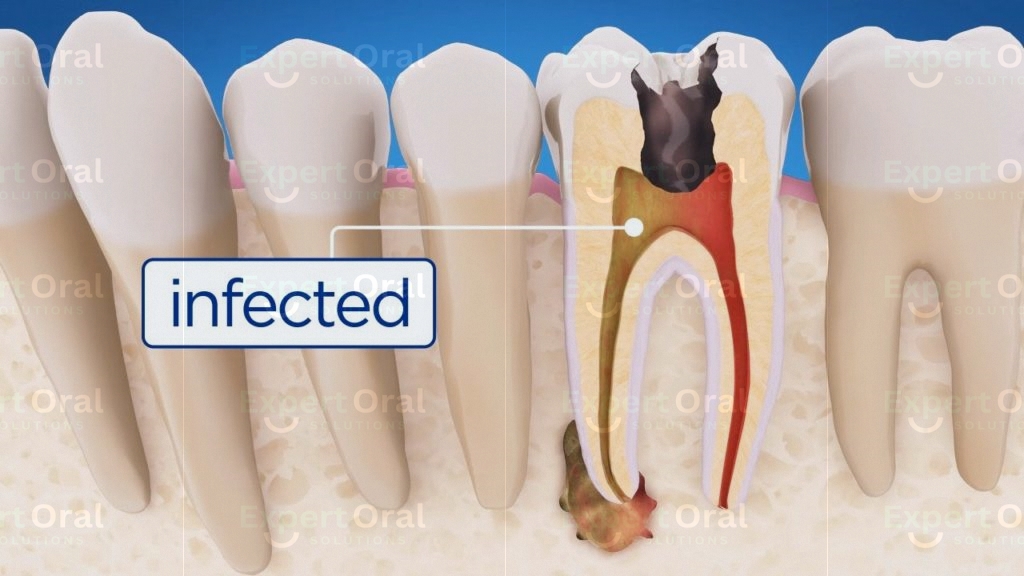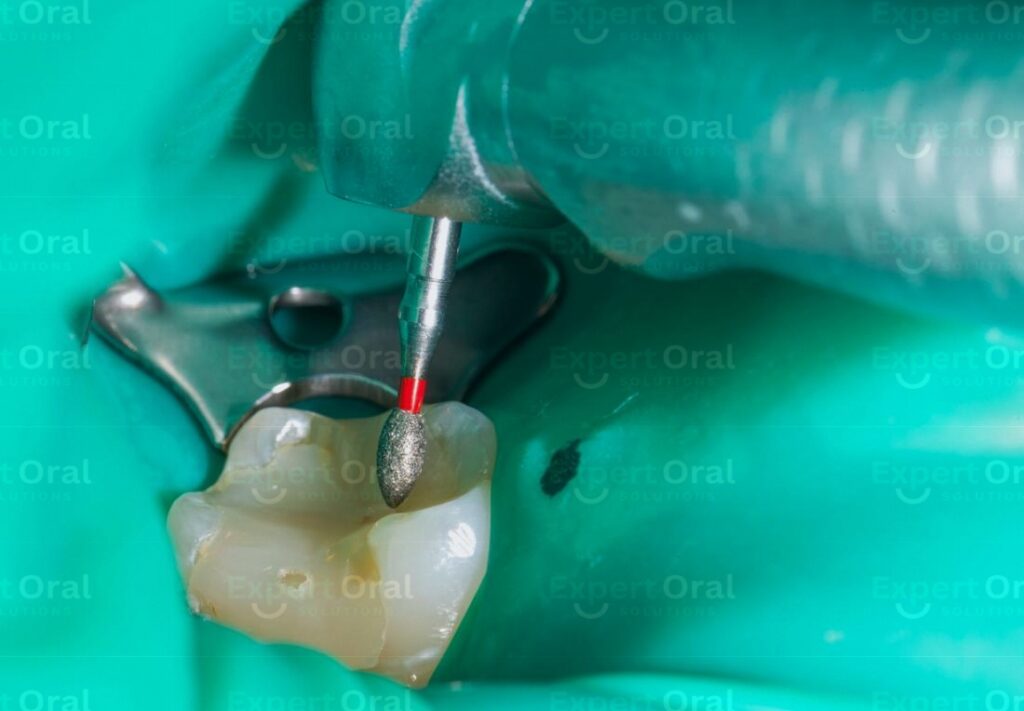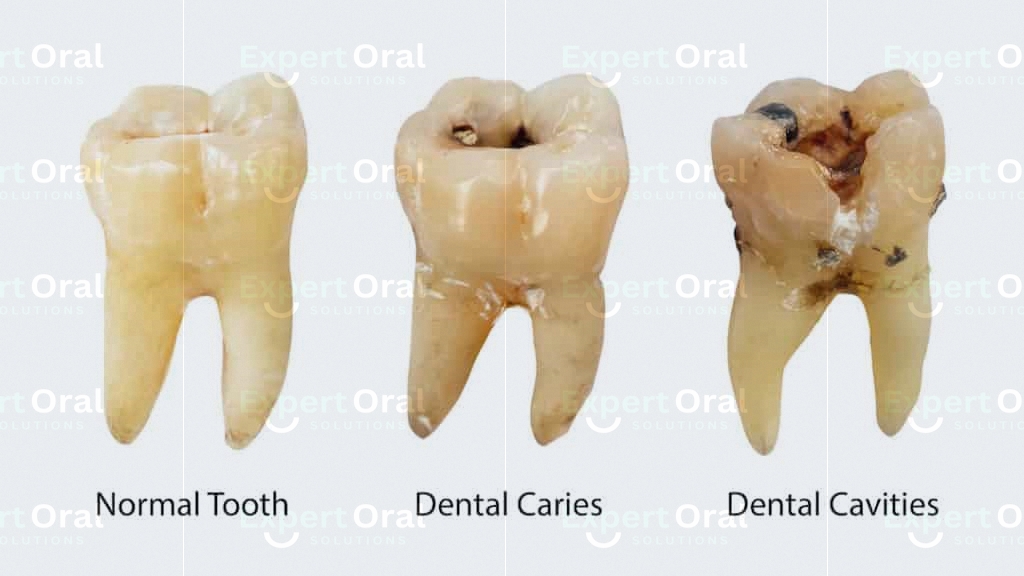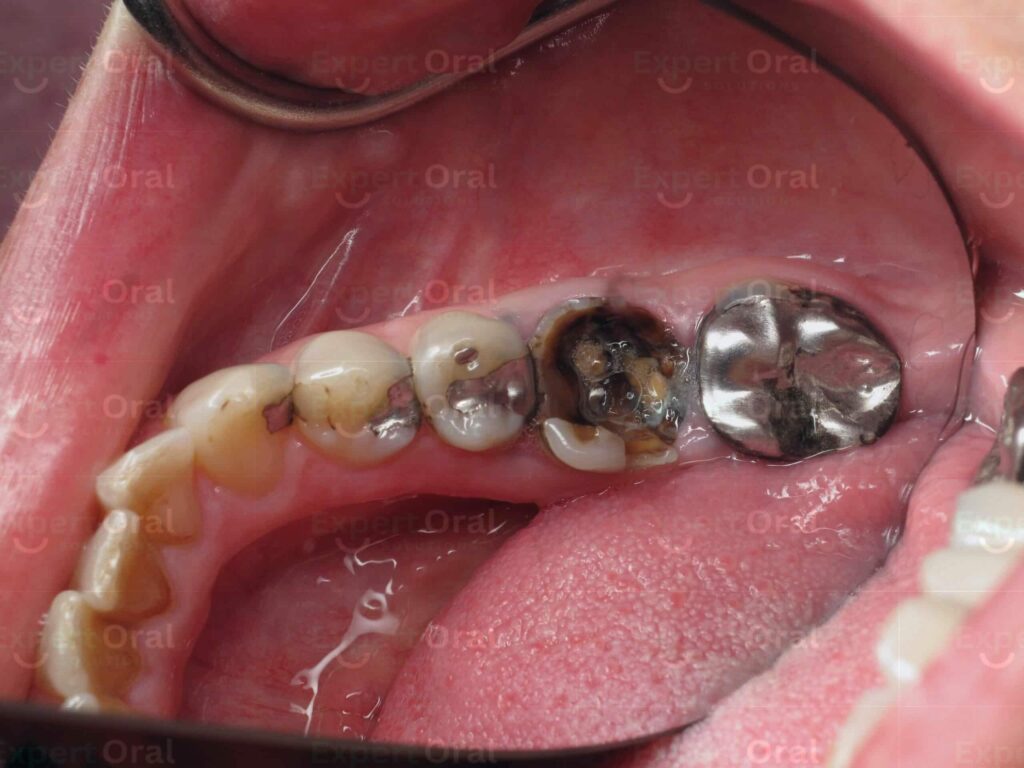Toothaches are no fun, and the threat of a root canal can cause even more anxiety. But before you jump to the worst-case scenario, there might be a simpler solution: a medicated filling. This blog explores how medicated fillings work, when dentists use them, and how they can potentially prevent the need for a root canal.
What is a Medicated Filling?
A medicated filling is a temporary dental restoration containing medication to soothe irritated tooth pulp. The tooth pulp is the soft tissue inside your tooth that contains nerves and blood vessels. When decay reaches close to the pulp, it can cause inflammation and sensitivity. A medicated filling aims to reduce this inflammation, giving the pulp a chance to heal and potentially prevent the need for a root canal, which removes the infected pulp entirely.
How Do Medicated Fillings Work?
Medicated fillings typically contain a medication called calcium hydroxide. This medication has several properties that benefit the tooth:
- Antibacterial: It helps kill bacteria that contribute to inflammation.
- Anti-inflammatory: It reduces swelling and discomfort in the pulp.
- Stimulates dentin formation: Dentin is a hard tissue beneath the enamel that protects the pulp. By stimulating dentin formation, the filling can create a barrier between the decay and the pulp.
When Are Medicated Fillings Used?
Dentists typically use medicated fillings in two situations:
- Deep Cavity: If a cavity is large and close to the pulp, but the pulp itself is not yet infected, a dentist may place a medicated filling to calm the irritated pulp and promote healing.
- Reversible Pulpitis: This is a temporary inflammation of the pulp that causes sensitivity, especially to hot or cold. A medicated filling can help reduce this sensitivity and allow the pulp to recover.
Are Medicated Fillings Always Successful?
Unfortunately, medicated fillings are not a guaranteed solution. The success rate depends on the severity of the inflammation and the remaining vitality of the pulp. Here’s what to expect:
- Success: If the pulp is healthy and the inflammation is mild, a medicated filling can promote healing and allow for a permanent filling.
- Partial Success: Sometimes, the inflammation subsides, but the pulp remains slightly irritated. In this case, you might still experience some sensitivity, and a root canal may be necessary in the future.
- Failure: If the pulp is already infected or severely inflamed, a medicated filling is unlikely to be effective. A root canal will likely be needed to remove the infected tissue and save the tooth.
Benefits of Medicated Fillings:
- Preserves the Tooth: By potentially avoiding a root canal, a medicated filling can help preserve the natural structure of your tooth.
- Less Invasive: Compared to a root canal, placing a medicated filling is a simpler and less invasive procedure.
- More Cost-Effective: Medicated fillings are typically less expensive than root canals.
Things to Consider:
- Temporary Solution: Medicated fillings are temporary and will need to be replaced with a permanent filling after a certain period, even if successful.
- Follow-up Appointments: You will need follow-up appointments with your dentist to monitor the tooth and assess the success of the treatment.
Authentic References:
- American Association of Endodontists: https://www.aae.org/
- National Institute of Dental and Craniofacial Research: https://www.nidcr.nih.gov/
Conclusion
Medicated fillings can be a valuable tool in your dentist’s arsenal for saving teeth and avoiding root canals. However, it’s important to understand their limitations and discuss your specific situation with your dentist. If you have any concerns about tooth pain or sensitivity, schedule an appointment with your dentist to determine the best course of treatment.




